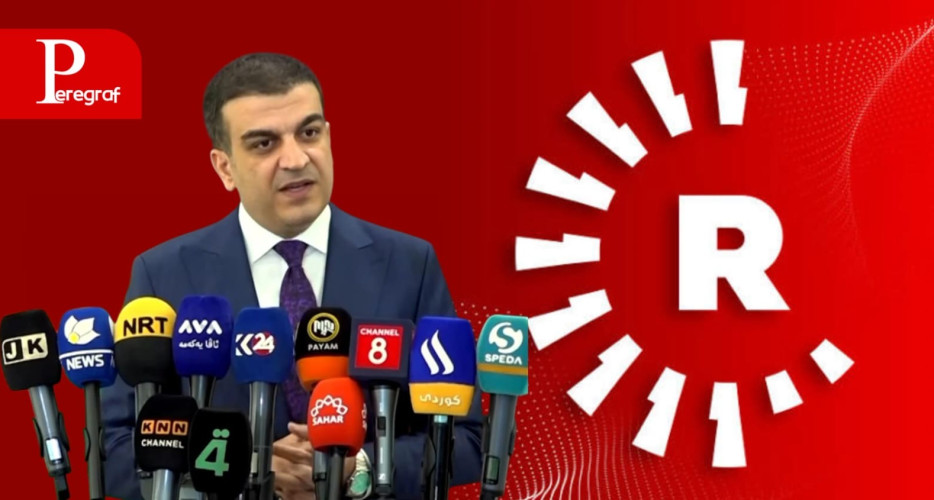
Peregraf
Rudaw Media Network was barred from attending a press conference held by Kurdistan Regional Government (KRG) spokesman Peshawa Hawramany, who described some outlets as “misleading media” and said participation would depend on whether he believed they upheld “professional obligations.”
The decision sparked strong criticism from the Metro Center for Journalists’ Rights and Advocacy, which condemned Hawramany’s remarks as “a threat to all media, an obstacle to freedom of the press, and a violation of the press law.”
According to the Metro Center, Rudaw journalists were initially invited to the briefing but were instructed not to set up their microphones upon arrival. During the press conference, Hawramany told Channel 8’s reporter that “there may be a day when you are not in our conferences, but now we have good relations and we are reporting government news accurately and appropriately.”
The Metro Center said the spokesman’s statement “demonstrates a growing trend of obstructing press freedom and undermining journalism law, which explicitly grants journalists the right to attend public conferences and events.”
This latest ban highlights the ongoing political rift between Prime Minister Masrour Barzani and Kurdistan Region President Nechirvan Barzani. Tensions between the cousins, who lead different wings of the Kurdistan Democratic Party (KDP), have frequently spilled into the media sphere. Rudaw, owned by President Barzani, has long been at the center of the feud, with the Prime Minister’s office restricting the network’s access to government officials and information.
In August 2022, Peregraf reported that Rudaw journalists were unable to secure interviews with ministers and were denied official statements for nearly two months. Reporters told Peregraf anonymously that the restrictions left the channel’s programs struggling, as government figures refused to appear on Rudaw or provide comment.
The dispute between the two leaders traces back to when Masrour Barzani succeeded Nechirvan Barzani as prime minister in 2019, forming the ninth cabinet. Since then, Masrour has frequently blamed his cousin’s 16-year premiership for corruption and governance failures, while Rudaw’s coverage has largely criticized the current cabinet’s handling of financial and political crises.
The Kurdistan Region has faced a severe financial crisis and tense disputes with Baghdad over oil and budget for the past eight years. Amid these challenges, press freedom has also suffered. Independent outlets remain few, and TV channels are largely controlled by political parties or leaders. Peregraf and other independent media have repeatedly struggled to obtain comments from the KRG spokesperson’s office.
Under Article 7 of the Kurdistan Region’s 2007 Press Law, journalists have the right to attend public conferences. However, the current cabinet has drawn sharp criticism from both local and international organizations for undermining these rights. The government has also faced international condemnation over the arrest of dozens of journalists and activists, particularly in Duhok, in recent years.
The barring of Rudaw from Hawramany’s press conference once again underscores the deep entanglement of political rivalries and media control in Kurdistan, raising serious concerns over the future of press freedom in the region.